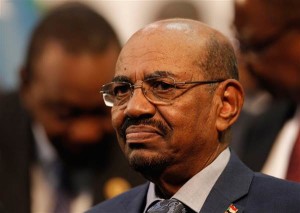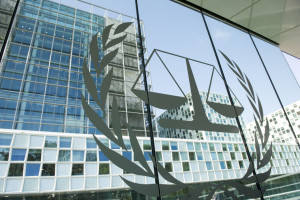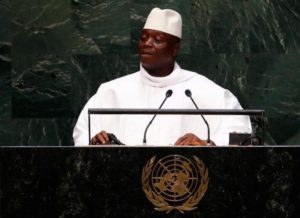
Sudanese President Omar al-Bashir during the 25th AU Summit in South Africa ©KIM LUDBROOK / EPA
On Thursday 6 July 2017, Pre-Trial Chamber II of the International Criminal Court (ICC) found that South Africa failed to comply with its obligations under the Rome Statute in the Omar Al-Bashir case. The former President of Sudan had visited South Africa on 13 June 2015 to attend the 25th Assembly of the African Union. The South African government then took no steps to arrest Omar Al Bashir, claiming he benefited from immunity as a head of State. In March 2016, the Supreme Court of Appeal of South Africa had ruled the government had shown unlawful conduct “in failing to take steps to arrest and detain, for surrender to the International Criminal Court, the President of Sudan, Omar Hassan Ahmad Al Bashir.”
The ICC found that South Africa failed to comply with its obligations by not arresting and surrendering Omar Al-Bashir to the Court while he was on South African territory between 13 and 15 June 2015. The Court considered that immunities did not apply as Sudan was in an analogous situation to those of States Parties to the Statute as a result of the UNSC’s resolution, under Chapter VII of the UN Charter, triggering the Court’s jurisdiction in the situation in Darfur and imposing on Sudan the obligation to cooperate fully with the Court.
However, the Chamber considered that it is not warranted to refer South Africa’s non-compliance to the Assembly of States Parties (ASP) or the Security Council of the United Nations (UNSC). This decision was motivated on the facts that South Africa was the first State Party to seek from the Court a final legal determination on the extent of its obligations to execute a request for arrest and surrender of Omar Al-Bashir and that South Africa’s domestic courts have already found South Africa to be in breach of its obligations under its domestic legal framework.
For the full decision, click here.

 In its 15 years of existence, the International Criminal Court is undergoing an acceptance crisis especially on the African Continent. Political narratives have significantly shaken the Court’s legitimacy and has led to the questioning of its relevance in today’s world.
In its 15 years of existence, the International Criminal Court is undergoing an acceptance crisis especially on the African Continent. Political narratives have significantly shaken the Court’s legitimacy and has led to the questioning of its relevance in today’s world.




